Therefore it is a no brainer to put the gutter over the drip edge because it will repudiate the whole purpose of the drip edge.
How far should gutter extend from drip edge.
If this slight overhang is too short water will drip behind the gutters leading to rotted roof sheathing and fascia stained siding and even soil erosion and a flooded basement.
The roof leg should extend a minimum of 2 back onto the roof sheathing.
The back edge of the gutter should tuck up behind the dripedge if you have it otherwise the edge of the shingles should extend well over the back half of the gutter so the drips cannot get behind it and rot the fascia board.
The lower edge of a roof should extend beyond the fascia board by about 3 4 inch so that runoff drains into the gutters.
Omitting the spacing between the fascia and the drip edge is a common mistake that contractors often make.
Metal is usually installed on rafters or strip sheathing rather than the solid decking used under other materials.
Some slight overhang is recommended in conjunction with a drip edge flashing to prevent water from getting under the roofing and onto underlying wood.
Gutters should be hung where a straight edge laying on your roof shingles can easily extend over the front lip of the gutter this is the proper installment location for the high point of the gutter.
In almost every instance gutter installers take the path of least resistance and shove the gutter right underneath the roof shingles instead.
A typical metal roof overhang may be 2 to 4 inches or even less.
How far should a drip edge be from fascia.
It should be a minimum extension of two inch from the fascia board on the roof.
A normal gutter will have about 1 2 3 4 of its width sticking out beyond the shingles to catch the runoff.
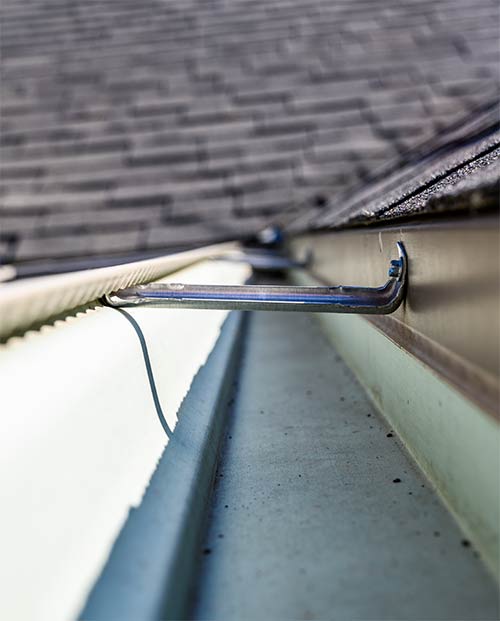
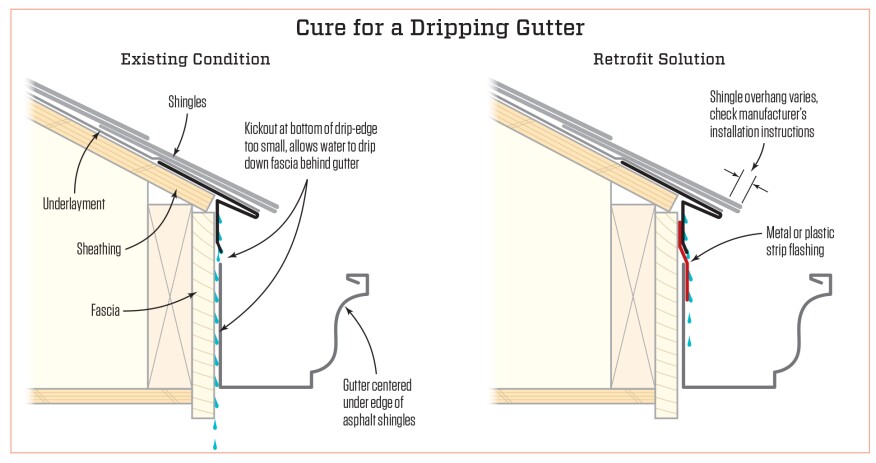
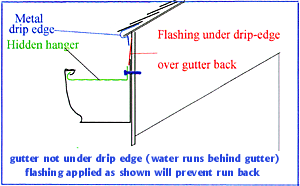
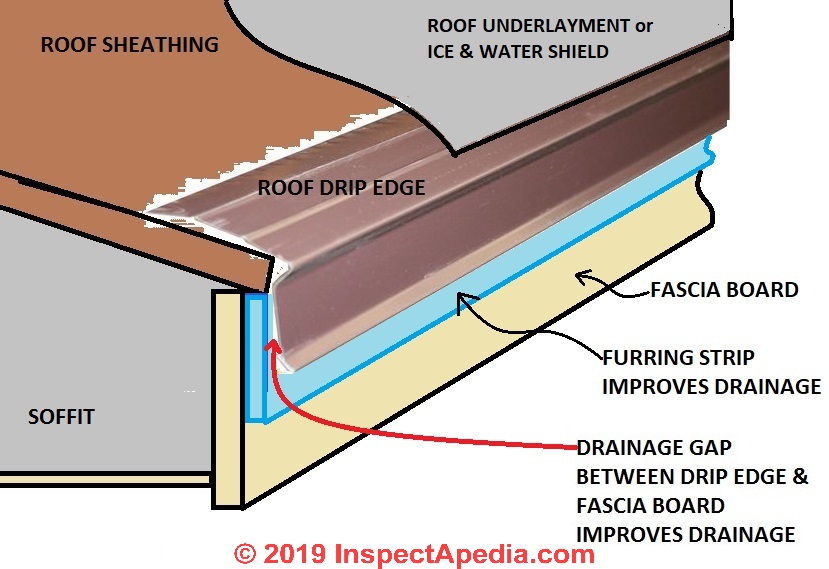

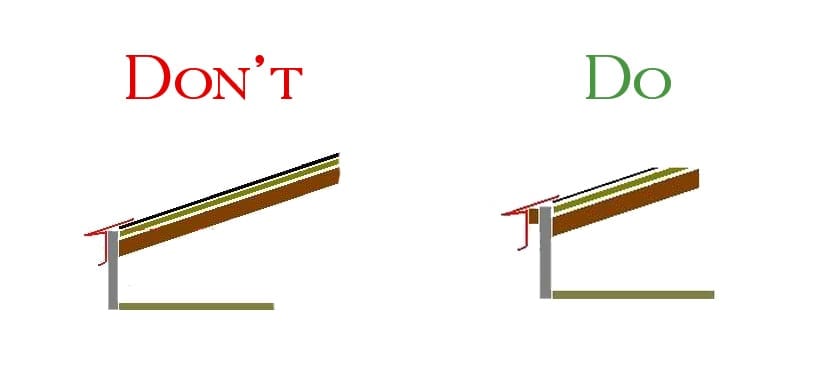



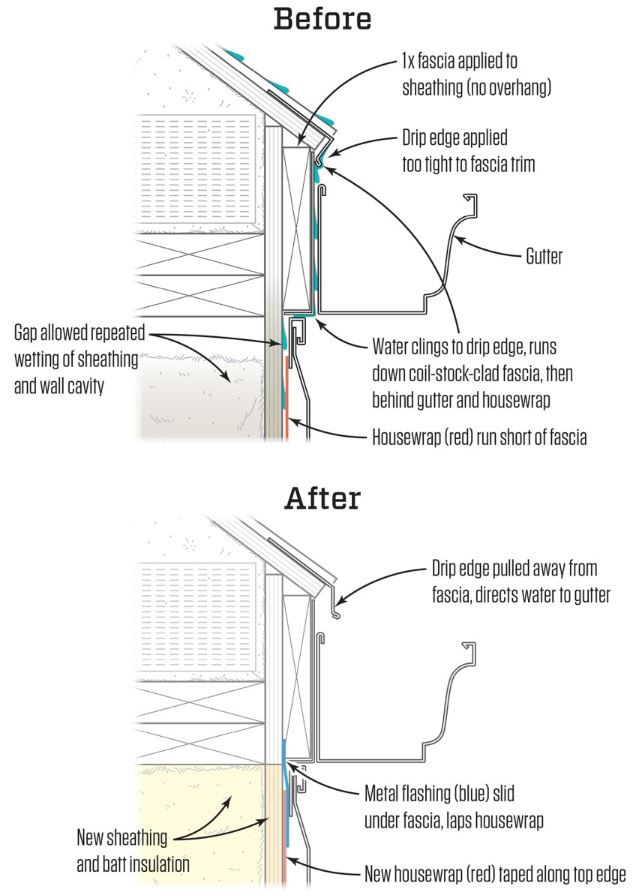


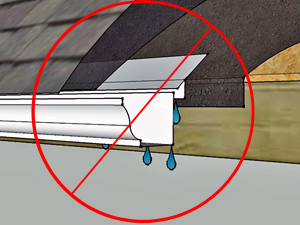

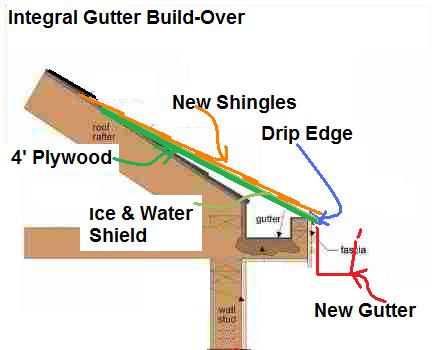





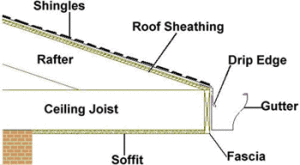





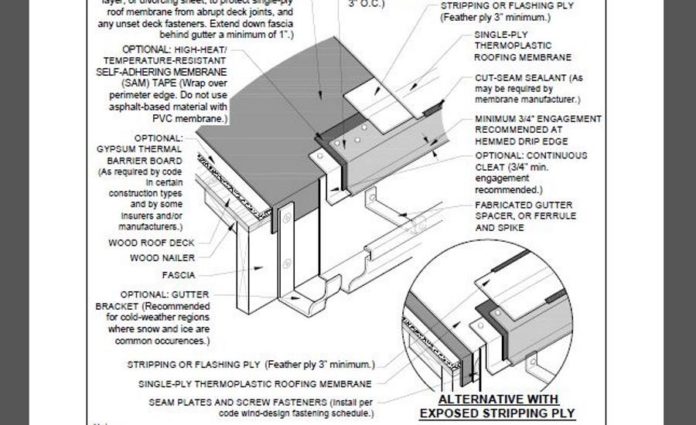
/cdn.vox-cdn.com/uploads/chorus_image/image/65895740/iStock_1030178214.9.jpg)